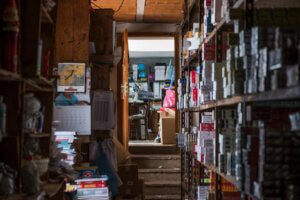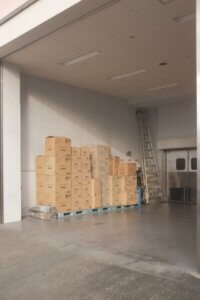Water Damage Specialists | Valuables Storage & Prevention
Water Damage Specialists | Valuables Storage & Prevention
Key Takeaways
- Invest in Proper Storage Solutions: Utilize waterproof safes and plastic bins with sealing lids for basic protection, and consider climate-controlled storage units for sensitive valuables like art, antiques, or important documents.
- Strategically Place Storage Areas: Elevate storage above ground level, especially in flood-prone zones, and position valuables away from areas susceptible to water damage such as bathrooms, kitchens, and external buildings.
- Conduct Regular Maintenance: Regularly inspect storage areas for signs of leaks, dampness, or mould, and maintain plumbing systems to prevent leaks that can lead to water damage.
- Prepare for Emergencies: Develop a clear, written emergency plan, keep protective materials like sandbags and plastic sheeting on hand, and ensure that water detection sensors are installed in critical areas.
- Understand and Review Insurance Coverage: Ensure that insurance policies adequately cover water damage and are clear on what is and is not covered regarding high-value items.
Summary
This article outlines best practices by water damage specialists for storing valuables to prevent water damage, emphasising the use of waterproof safes, climate-controlled storage, and strategic placement above flood levels. It stresses regular maintenance checks, the importance of emergency preparedness with detailed plans and protective materials, and the necessity of understanding insurance coverage specifics to ensure valuable items are protected against potential water damage.
Protecting your valuables from water damage involves more than just avoiding obvious threats; it requires a proactive approach to storage and preventive maintenance. Water damage can strike unexpectedly, due to natural disasters, plumbing failures, or even from humidity in the air. The repercussions can be severe, leading to the irreversible loss of cherished items or costly damage to critical documents and electronics. Understanding and implementing best practices in storing valuables can greatly minimise these risks and safeguard your possessions for the long term.
Optimal Storage Solutions for Water Damage Prevention
To effectively protect your valuables from water damage, it is essential to select the right storage solutions. Here are some of the best options from our water damage specialists:
- Waterproof Safes: Invest in high-quality safes that offer waterproof ratings. Look for safes certified by the Underwriters Laboratories (UL) or similar entities that ensure they can withstand submersion.
- Plastic Bins with Sealing Lids: For less sensitive items, heavy-duty plastic bins with sealing lids can provide a basic level of protection against water ingress.
- Climate-Controlled Storage Units: For valuable collections such as art, antiques, or important documents, consider renting a climate-controlled storage unit. These units maintain a consistent temperature and humidity level, which is crucial for preventing moisture buildup.
Strategic Placement of Storage Areas
The location of your storage is just as important as the type of storage you choose. To enhance protection, consider the following strategies:
- Above Ground Level: Always store valuables off the floor, preferably on shelves or pallets, especially in areas prone to flooding, such as basements or ground floors.
- Internal Home Locations: Avoid storing valuable items in external buildings or areas directly adjacent to water lines, such as bathrooms or kitchens. Instead, opt for central locations within the main structure of your home or business.
- Away from Known Risk Areas: Be mindful of the architectural and environmental vulnerabilities of your property. Avoid areas known for leaks, near old pipes, or under potentially leaky roofs.
Regular Maintenance Checks
Regular maintenance is key to preventing water damage:
- Inspect Your Storage Areas Regularly: Check for signs of leaks, dampness, or mould in storage areas. Early detection of these issues can prevent significant water damage.
- Maintain Plumbing: Regularly inspect and maintain your property’s plumbing systems to avoid leaks that can cause water damage. This includes hoses, faucets, water heaters, and the general plumbing network.
- Use of Technology: Consider installing water detection sensors that can alert you to the presence of moisture in critical areas around your storage locations. These devices are particularly useful in hidden or hard-to-see areas.
Preparing for Emergency Situations
Despite all precautions, emergencies can occur. Being prepared with a quick response plan is crucial:
- Emergency Plan: Have a clear, written plan detailing steps to take in case of a flooding event or major leak. This plan should include the prioritisation of items to be moved first and emergency contact numbers.
- Protective Materials On-Hand: Keep materials such as sandbags, water-absorbent mats, and plastic sheeting readily available in your home or business to use in an emergency to protect stored valuables.
- Review Insurance Coverage: Ensure your insurance policy covers water damage and understand the specifics of what is and isn’t covered, particularly concerning high-value items.
Storing valuables to prevent water damage requires a multi-faceted approach involving the right storage solutions, strategic placement, regular maintenance, and emergency preparedness. By following these best practices by our water damage specialists, you can significantly mitigate the risk of water damage to your most cherished possessions.
FAQs
What services do water damage specialists provide?
Water damage specialists offer a range of services including water extraction, drying and dehumidification, mould remediation, carpet and upholstery cleaning, and structural repairs. They assess water damage, develop a restoration plan, and execute the necessary steps to restore the property to its pre-damage condition.
How quickly should I contact a water damage specialist after discovering water damage?
It is crucial to contact a water damage specialist as soon as possible, ideally within the first 24-48 hours of discovering the damage. Prompt action can prevent further deterioration of the property, mitigate the risk of mould growth, and help in salvaging more items effectively.
What are the qualifications of a water damage specialist?
Water damage specialists typically hold certifications from recognized industry organizations such as the Institute of Inspection, Cleaning and Restoration Certification (IICRC). These certifications ensure they are trained in the latest restoration techniques and safety protocols. Additionally, many specialists have experience in construction or a related field, which aids in effectively managing the complex issues involved in water damage restoration.
Why Choose AllAces?
AllAces Cleaning & Restoration has over 35 years of industry experience handling extensive water damage projects across Brisbane, Sydney, Melbourne and surrounds. Our IICRC-certified water damage specialists are highly trained utilising the latest technology and equipment to ensure the return of a pre-loss condition.


